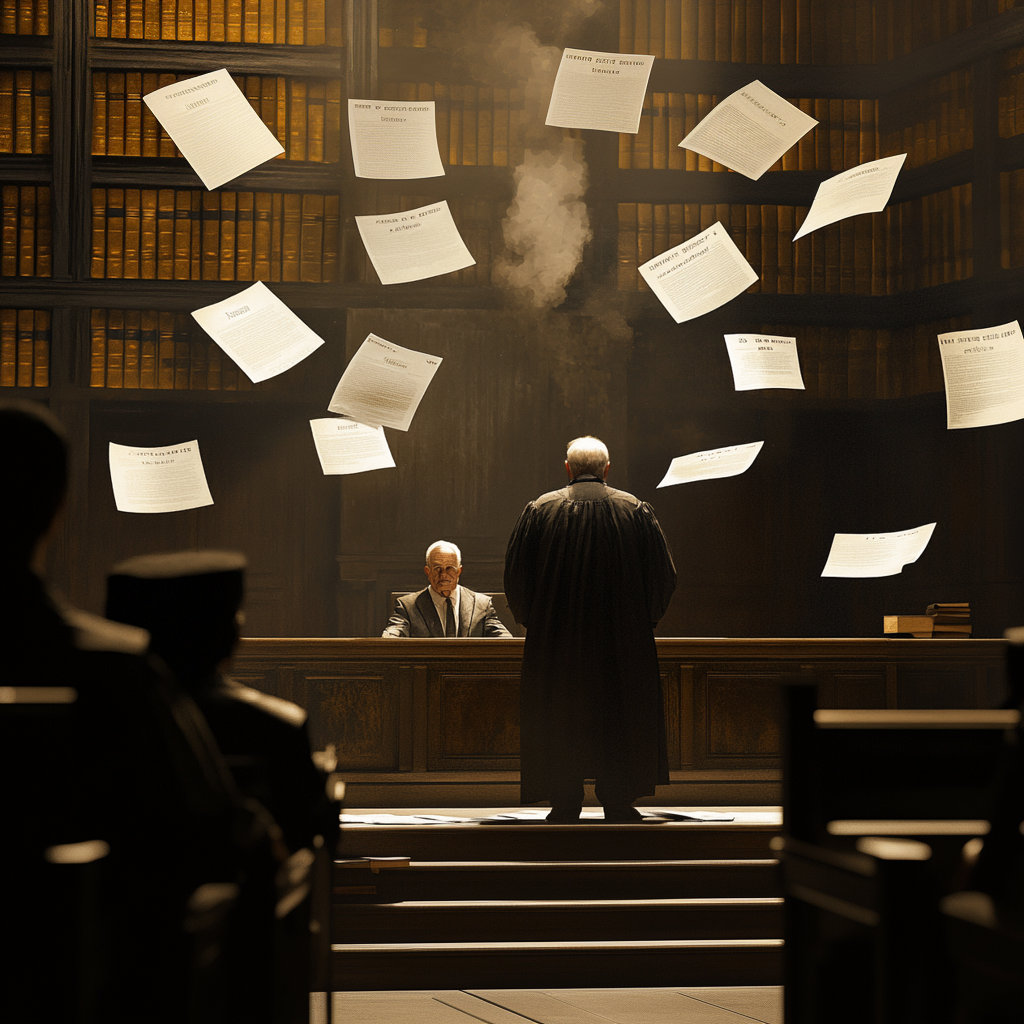[6:24] We delve into the debate over the interpretation of the U.S. Constitution, focusing on originalism versus a more dynamic, evolving approach. Larry introduces a classic clip from Justice Antonin Scalia, who argues that the Constitution should be interpreted as it was written over 200 years ago. The conversation explores how this viewpoint influences judicial activism, especially around elections. Chance weighs in, advocating for a living Constitution that adapts with societal changes. They discuss the challenges of amending the Constitution and how different interpretations can influence political choices.
[12:32] We explore contrasting judicial philosophies, focusing on originalism, as championed by Justice Scalia. Scalia asserts that the Constitution’s meaning should remain consistent with the original intent of its framers, using examples like abortion and same-sex relationships to argue that no one at the time believed the Bill of Rights prohibited such laws. Larry and Chance discuss the implications of this approach on contemporary issues, emphasizing how elections influence the judiciary. They highlight the tension between a static interpretation and the need for laws to evolve with society, particularly regarding controversial issues and judicial activism.
[18:44] A listener named Richard asks if he would have to register again in New Mexico after moving back and having his felony dropped in California. Larry and Chance discuss the complexities of registration laws, particularly how New Mexico’s process involves an equivalency determination, meaning Richard’s previous conduct could still require registration. They also touch on the challenges of changing the factual basis of past convictions, and how different states handle such cases. The conversation highlights the intricacies of legal processes, how state laws vary, and the importance of understanding the nuances of registration requirements when moving across states.
[38:02] We a recent decision from the Illinois Appellate Court in the case of
In Re Commitment of Johnny Butler, which offers hope for reform in civil commitment cases. Butler, committed in 2008 under the Sexually Violent Persons Commitment Act, finally obtained conditional release at age 70 in 2023. However, his release conditions, including 68 restrictive terms, were mostly copied from another case, raising legal concerns. The court ruled that Butler’s plan must be individualized and in the least restrictive manner. This decision highlights the importance of fair treatment for those in similar situations at the Rushville facility.
[48:41] In this segment, the hosts discuss key steps for selecting the right lawyer for a criminal case. Chance emphasizes the importance of evaluating an attorney’s experience, ensuring they specialize in criminal law and have extensive trial experience. Additionally, he advises researching their track record, and client satisfaction, and checking if they’ve been disciplined by the state bar. They also highlight the need for clear communication, understanding the payment model, and considering the lawyer’s familiarity with local court procedures. Larry and Chance agree that both local knowledge and experience with similar cases are critical to achieving a successful outcome.
https://www.registrymatters.co/podcast/rm315-illinois-court-ruling-brings-hope-for-civil-commitment-reform/
Leave voicemail: 747-227-4477
Email us: registrymatterscast@gmail.com
Support us on Patreon: https://www.patreon.com/registrymatters
Join the Discord server: https://discord.gg/6FnxwAQm57
Want to support Registry Matters with some swag: https://shop.spreadshirt.com/registry-matters
Apple Podcasts: https://itunes.apple.com/us/podcast/registry-matters/id1305039280
Google Play Music: https://play.google.com/music/listen?u=0#/ps/Icuxbpzvyti7wtoredipbtiojqy
RSS: https://www.registrymatters.co/feed/podcast/
Spotify: https://open.spotify.com/show/3d75P7Kc37n2l79m89F9KI
YouTube: https://www.youtube.com/registrymatters
The Registry Matters Podcast’s mission is to cover issues surrounding the Registry. We cover cases that will peel back the veneer of what we need to do to change our lives for the better. We cover news articles that spark conversations about the total insanity of this modern day witch hunt. This podcast will call out bad policy and call out those that are making bad policy.
To change things for the positive, we need to act. We are 6-7-8-900k strong. With that many people, plus their friends and family, over a million people are affected by the registry. We should be able to secure donations to hire lawyers and lobbyists to move the agenda in our favor. We need our people to be represented.


Leave a Comment